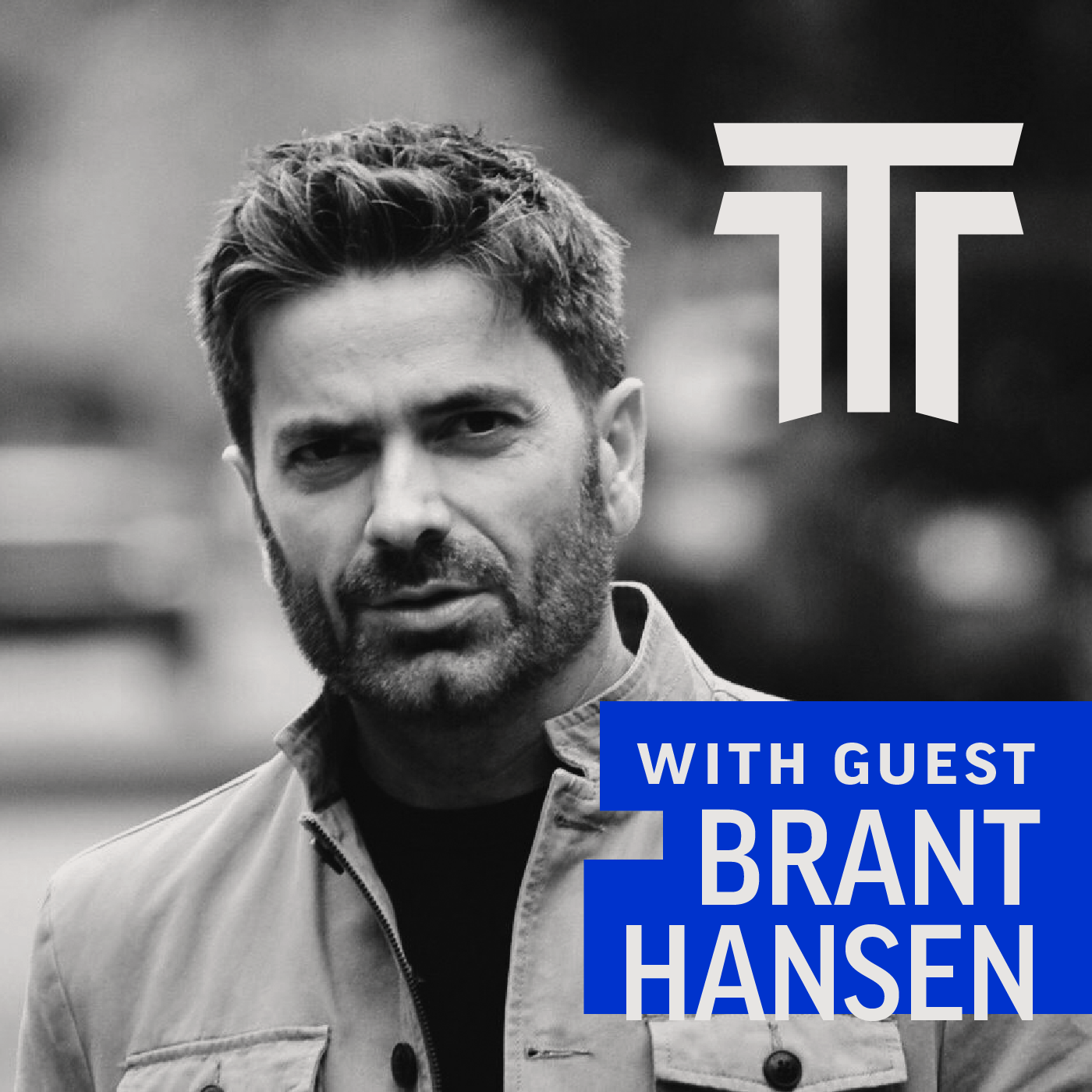Gen Z’s Fight Against Theological Liberalism with YouTuber Redeemed Zoomer
Is spiritual renewal happening within Gen Z?
The Asbury Revival. Rapidly growing college ministries. Recent happenings have many Christians convinced that spiritual renewal is occurring within Gen Z. Today, Patrick learns more about what’s going on in this generation when he sits down with “Redeemed Zoomer,” a YouTuber and leader of a group of Gen Zers across the country who are seeking to reclaim mainline denominations from liberal theology. Recently, this group, named “The Protestant Reconquista,”wrote their own “95 Theses,” which...
Read MoreThe Asbury Revival. Rapidly growing college ministries. Recent happenings have many Christians convinced that spiritual renewal is occurring within Gen Z. Today, Patrick learns more about what’s going on in this generation when he sits down with “Redeemed Zoomer,” a YouTuber and leader of a group of Gen Zers across the country who are seeking to reclaim mainline denominations from liberal theology. Recently, this group, named “The Protestant Reconquista,”wrote their own “95 Theses,” which exposed the flaws of theological liberalism, and sent them to every mainline Protestant church in America. Hear Redeemed Zoomer share more on this grassroots movement, its goals, and what he believes churches across the country must do in order to join arms against those who have abandoned the essentials of the Christian faith for secular ideologies. Plus, what has he personally witnessed the Holy Spirit doing within Gen Z? Has he experienced any resistance? Why does he hide his identity? And how does he believe churches should utilize online content to reach his generation (and beyond)? Listen now!
Have you benefitted personally from Truth Over Tribe or seen it have a positive effect on someone you know? have you used the podcast, book, or blog as a catalyst for conversation on polarizing topics?
We want to hear about it!
Share your story at choosetruthovertribe.com/story.
Ok, truth time... Did you like this episode? Tell us by leaving a rating or review! 🌟🌟🌟🌟🌟 If you did, you won't want to miss what's next (so subscribe now!). And help a friend by sharing this with them. Thank you! 🙏
Plus, the conversation is just beginning! Follow us on Twitter, Facebook, and Instagram to join in on the dialogue! If you disagree with anything in this episode, we'd love to hear your thoughts here. Want to learn more about Truth Over Tribe? Visit our website and subscribe to our weekly newsletter.

This Week's Hosts
Patrick Miller
Patrick Miller is a pastor and cultural commentator who writes about politics, culture, and...
Read MorePatrick Miller is a pastor and cultural commentator who writes about politics, culture, and technology, contributing articles to Christianity Today, Newsweek, The Gospel Coalition, and other publications. His podcast, Truth Over Tribe is one of Apple's top news commentary podcasts, featuring interviews with leading Christian thinkers, writers, and scholars. He's the co-author of Truth Over Tribe: Pledging Allegiance to the Lamb, Not the Donkey or the Elephant. Patrick received a Master of Divinity from Covenant Theological Seminary, and pastors a politically diverse church, The Crossing. He and his wife, Emily, have two children.
You can connect with him on Twitter: @patrickkmiller_
Resources
Check out our resources!Recent Episodes

Trump’s RNC Tells Social Conservatives: “You’re Fired!”
If you watched the Republican National Convention, you noticed several things that seemed… out of place. A Hindu prayer. Hulk Hogan. And a platform that’s strayed from conventional conservative values, including traditional marriage and the sanctity of life. It’s clear: The “new” Republican party is here. And its “Trumpublican” values seem to have sidelined social conservatives. So, what do Christians do now that there is no pro-life party? Will they stand for truth over tribal alliances? Today, Keith and Patrick team up to discuss how Trump seems to have turned his back on the evangelicals who made him President. How will conservatives and Christians respond? Will they change their principles? Or, finally, choose truth over tribe? Listen now!Have you benefitted personally from Truth Over Tribe or seen it have a positive effect on someone you know? have you used the podcast, book, or blog as a catalyst for conversation on polarizing topics?We want to hear about it!Share your story at choosetruthovertribe.com/story.Ok, truth time... Did you like this episode? Tell us by leaving a rating or review! 🌟🌟🌟🌟🌟 If you did, you won't want to miss what's next (so subscribe now!). And help a friend by sharing this with them. Thank you! 🙏Plus, the conversation is just beginning! Follow us on Twitter, Facebook, and Instagram to join in on the dialogue! If you disagree with anything in this episode, we'd love to hear your thoughts here. Want to learn more about Truth Over Tribe? Visit our website and subscribe to our weekly newsletter.Want more truth over tribe? Check out our resources!

Will Trump’s Assassination Attempt Finally Wake Us Up?
On July 13, 2024, former President Donald Trump was almost assassinated at a rally in Butler, Pennsylvania. While it’s not our place to weigh in on many aspects of this horrific attack, we do want to focus on the church: How should Christians respond? On today’s episode, Keith and Patrick issue a call for Christians to think carefully and clearly, put truth over tribe, and realize that our response can have the power to shape the future of the country. They examine how our political climate has led to this point, explaining how our recent political rhetoric has reveled in catastrophizing and how this has not been the norm of civil discourse over the past several decades. They break down how it’s possible to be so violently divided from the “other side” and how political violence, in general, is increasing in both parties. They end by providing practical steps that Christians should take in this moment. Will this assassination attempt be an inflection point? Will the tribalized church finally wake up? Listen now!Have you benefitted personally from Truth Over Tribe or seen it have a positive effect on someone you know? have you used the podcast, book, or blog as a catalyst for conversation on polarizing topics?We want to hear about it!Share your story at choosetruthovertribe.com/story.Ok, truth time... Did you like this episode? Tell us by leaving a rating or review! 🌟🌟🌟🌟🌟 If you did, you won't want to miss what's next (so subscribe now!). And help a friend by sharing this with them. Thank you! 🙏Plus, the conversation is just beginning! Follow us on Twitter, Facebook, and Instagram to join in on the dialogue! If you disagree with anything in this episode, we'd love to hear your thoughts here. Want to learn more about Truth Over Tribe? Visit our website and subscribe to our weekly newsletter.Want more truth over tribe? Check out our resources!

You Don’t Deconstruct from Jesus with Brant Hansen
Life is hard. God is good. Let’s dance. That’s the mantra (and the book title) of today’s podcast guest, Brant Hansen. Brant is an award-winning author and radio show host whose life provides a tangible example of the joy often missing in Christianity today. But his joy doesn’t stem from ignorance or a life free of trauma. Hear him explain to Keith how even though he could have deconstructed his faith, he never could fathom deconstructing from Jesus himself. He uses his own “strange” experiences to illustrate Jesus’s model of Christian neighboring and radical generosity. He also touches on gender roles and a true, biblical vision for masculinity. Need a little joy? You won’t want to miss this one!Have you benefitted personally from Truth Over Tribe or seen it have a positive effect on someone you know? have you used the podcast, book, or blog as a catalyst for conversation on polarizing topics?We want to hear about it!Share your story at choosetruthovertribe.com/story.Ok, truth time... Did you like this episode? Tell us by leaving a rating or review! 🌟🌟🌟🌟🌟 If you did, you won't want to miss what's next (so subscribe now!). And help a friend by sharing this with them. Thank you! 🙏Plus, the conversation is just beginning! Follow us on Twitter, Facebook, and Instagram to join in on the dialogue! If you disagree with anything in this episode, we'd love to hear your thoughts here. Want to learn more about Truth Over Tribe? Visit our website and subscribe to our weekly newsletter.Want more truth over tribe? Check out our resources!